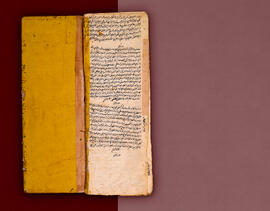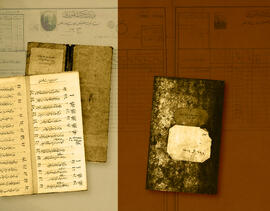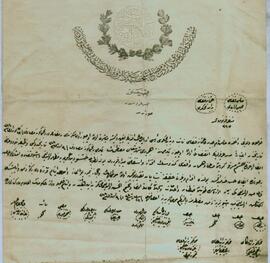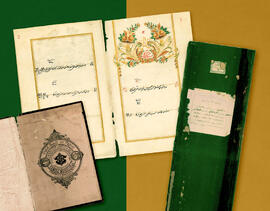Şer'iyye Registers are the notebooks recorded in the courts of the Ottoman period. These registers, which contain the legal proceedings of the society in the center and provinces of the Ottoman Empire, are an important source for research in the social, economic, legal, demographic and architectural fields of Ottoman history. They are considered to be primary sources for understanding the functions of local administration, the structure of cities and social order. Today, these registers provide researchers with the opportunity to go deeper into Ottoman history and conduct micro-level studies.
The content of the registers includes all kinds of records related to civil law such as legal disputes, inheritances, inheritance divisions, marriage and divorce, notarial procedures (purchase-sale, lease, donation, debt exchange, loan transactions), criminal cases, municipal activities and the price regulations, documents related to the disposal, construction and repair of foundations and/or public buildings, copies of provisions and edicts from the center, and social and economic issues of the society.
The earliest examples of Shar'iyye Registers in the Ottoman Empire belong to the court of Bursa. The first examples of the registers, dated 1455, were kept regularly until the beginning of the twentieth century, even though they have been become narrower in terms of the subjects they covered due to the establishment of new courts in the second half of the nineteenth century.
The ISAM Library Archive is the most comprehensive collection of qadi registers in the world, including those of Istanbul, Anatolia, the Balkans and some cities in the Middle East. They can be searched digitally at the İSAM Library.
This catalog is based on the compilation of digital data obtained from 5739 registers in the Istanbul Mufti's Office (Meşihat) Archive. The registers span from the 16th to the 20th centuries and encompass records from various offices, including Şeyhülislamlık, Rumelian Qadiasker, Anatolian Qadiasker, Nakibüleşraf (chief of the noble notables), Istanbul and Bilad-ı Selase Qadiliks. Additionally, it includes registers related to the Bab-ı Meşihat councils and documents shedding light on the activities of certain members of the religious scholars' class. The digital versions of these 5739 registers are accessible for examination within the ISAM Library.
Bab-ı MeşihatThe digital copies of 6,835 personal files, the originals of which are housed in the Istanbul Muftī’s Office Mashīkhat Archive, can be examined in the ISAM Library Archive. The files consist of a variety of documents, such as status translations, ijāzatnāme, population and salary certificates of civil servants who served in different accidents, and regions and levels under the office of the shaykh al-islām (grand muftī). Some of the files consist only of envelopes and do not contain the status translations.
Sicill-i Ahval KomisyonuThe notebooks in the catalogue were obtained from various institutions and booksellers and include various types of notebooks belonging to the Ottoman state structure. These books, which reached our institution at different times and in an irregular manner, and which do not have subject integrity, have been brought together and turned into a compilation catalog.
The collection brings together notebooks from different administrative and judicial fields such as finance, land registry, and population. While the notebooks vary in content and form, they are important primary sources that shed light on the functioning of the Ottoman bureaucratic structure, provincial-administrative relations and social structure.



